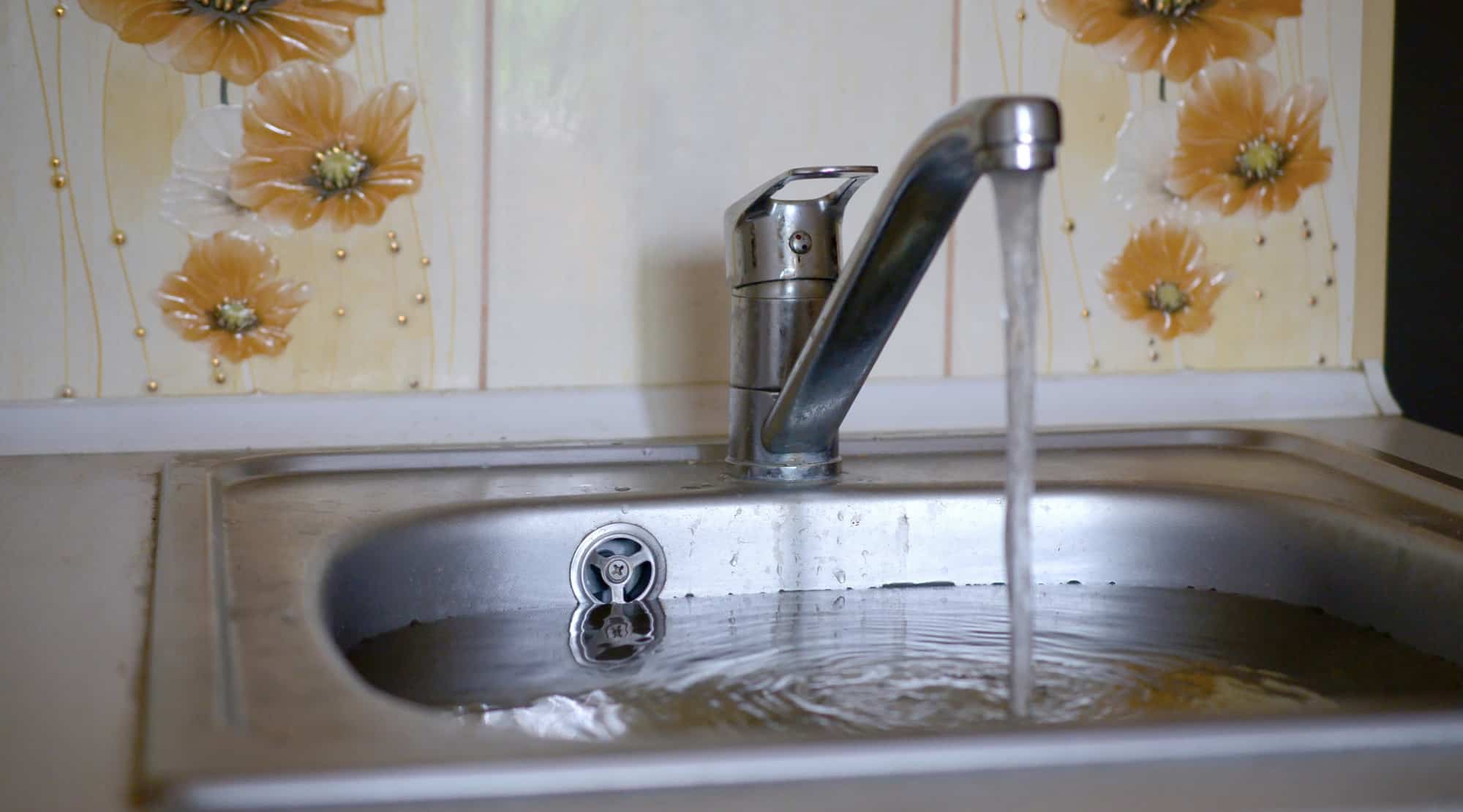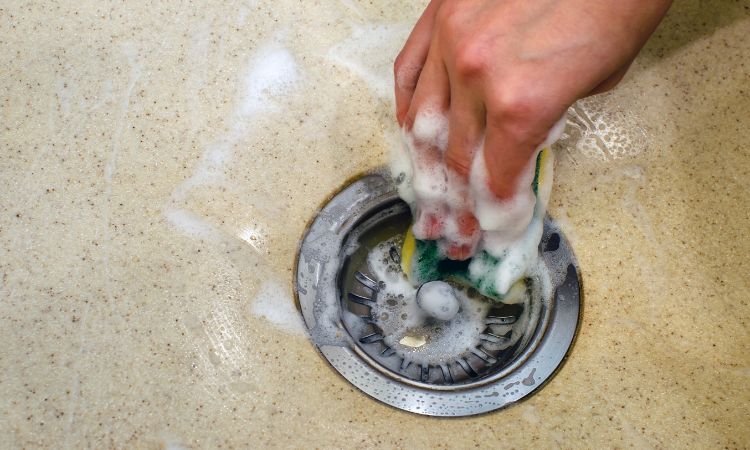Effective Tips For Correcting A Slow-Draining Sink
Effective Tips For Correcting A Slow-Draining Sink
Blog Article
On this page in the next paragraphs you can find more extremely good information and facts regarding 4 Tips to Fix a Slow Draining Sink.

Introduction
We have actually all been there: You're cleaning your teeth or washing your hands, and you notice the water pooling in the sink. Instead of promptly swirling away, it sticks around, transforming your once-refreshing early morning regimen into a miniature swamp scene. A slow-draining sink isn't just aggravating; it's usually an indicator of larger pipes problems hiding below the surface area. The bright side is that a lot of slow-draining sinks can be taken care of with a little expertise, a few standard devices, and some perseverance. Prepared to tackle this task head-on? Allow's roll up our sleeves and dive right in.
Understanding the Reasons For a Slow-Draining Sink
Before you begin poking around in your pipes, it aids to understand what could be triggering the slowdown. Understanding the source makes it much easier to pick the ideal repair.
Common Culprits Behind Slow Drain
So, what's blocking things up? Typically, it's a mix of everyday debris-- believe hair, soap residue, toothpaste residue, and leftover food fragments. With time, these tiny bits build up and hold on to the pipeline walls, gradually tightening the passage and making it harder for water to go through. In many cases, natural resource from difficult water can also add to the crud, producing the perfect tornado for persistent blockages.
When is it Time to Act?
If you observe the water draining pipes slower than common, it's an excellent concept to intervene quicker as opposed to later on. Waiting also long could lead to complete clogs, unpleasant odors, or even pipe damages. If the water takes more than a couple of seconds to remove after switching off the faucet, consider it a red flag and prepare to place on your DIY hat.
Devices and Products You'll Need
The right devices make all the difference. Luckily, you won't need a totally stocked plumber's van to finish the job.
Necessary Tools for DIY Services
A bettor is your go-to beginning point. A small, sink-sized bettor develops suction that can dislodge small obstructions. For even more consistent obstructions, a drain snake (in some cases called a plumbing technician's auger) functions wonders. A set of gloves, a flashlight, and perhaps a pair of safety goggles are additionally helpful.
Recommended Cleaning Solutions
Moderate meal soap and warm water can assist break down oily build-up. A combination of baking soft drink and vinegar is a reliable natural remedy, and enzymatic cleaners use an even more eco-friendly method. Maintain chemical drain cleaners as a last hope, as they can be extreme on your pipes.
Safety First: Safety Measures and Prep work
Prior to you launch into unclogging setting, think about safety. You're taking care of possibly unclean water and particles, so slip on a set of handwear covers. If you're making use of chemical cleaners, guarantee the room is well-ventilated and comply with the directions on the label.
Safety Equipment and Work Space Arrangement
Put down some old towels or cloths around the sink area to capture dashes. Clear away any kind of things that might get in your method, like soap dispensers or toothbrush holders. Make certain you have good lighting-- order a flashlight if required.
Step-by-Step Overview to Fixing a Slow-Draining Sink
Currently, allow's get involved in the nitty-gritty. This step-by-step procedure will lead you via basic techniques to recover your sink's water drainage.
Step 1: Eliminate and Tidy the Stopper
Usually, the stopper (that small plug you push down to obstruct water) is the initial culprit. Remove it thoroughly and wipe any kind of hair or gunk trapped around its base. Rinse it thoroughly prior to putting it back in place.
Step 2: Make Use Of a Bettor to Dislodge Particles
Got that plunger ready? Setting it over the drain and give it a few firm pumps. The idea is to develop suction that can loosen up any type of clog. If you see littles debris drifting up, you get on the appropriate track.
Action 3: Try a Drain Snake or Cord Wall Mount
If the plunger doesn't suffice, it's time to bring out the drainpipe snake. Gently feed it right into the drain and spin as you go. You may feel some resistance-- that's most likely the clog. Maintain twisting and pulling till you eliminate the blockage. If you don't have a drainpipe snake, an aligned cord wall mount can operate in a pinch.
Step 4: Apply a DIY Drainpipe Cleaner
A natural cleaner made from baking soda and vinegar can break down residual grime. Put half a cup of baking soft drink right into the drain, adhered to by half a mug of vinegar. Allow it fizz for around 15 minutes, then flush with hot water. This chain reaction commonly does wonders for small blockages.
Step 5: Reconstruct and Evaluate the Sink
Put whatever back with each other and run the faucet. Does the water currently swirl down the drain at a respectable speed? If yes, offer on your own a pat on the back. Otherwise, do not misery-- there are still a couple of more dress up your sleeve.
Alternate Techniques for Stubborn Clogs
Not all blockages are created equivalent. If your sink still declines to comply, consider these different options.
Sodium Bicarbonate and Vinegar Method
We already discussed this, but it's worth noting once again. This mild, environment-friendly method is safer than chemical cleaners and typically fairly efficient.
Enzymatic Drainpipe Cleaners
Enzyme-based cleaners make use of all-natural microorganisms to absorb organic matter. They're an excellent option if you're wanting to stay clear of harsh chemicals. Simply remember, they may take a bit longer to work their magic.
Chemical Drain Cleansers: Advantages And Disadvantages
Chemical cleaners can blast via challenging clogs quickly, but they're not without disadvantages. They can produce heat and fumes, damages pipes if made use of exceedingly, and present environmental dangers. Use them moderately, and always follow the instructions meticulously.
Preventive Measures to Maintain Your Sink Flowing
Prevention is the very best treatment. By taking on a few straightforward practices, you can keep your sink from slowing down to begin with.
Normal Cleansing Behaviors
Wipe down the sink basin and fixture location consistently. Remove hair or food bits prior to they have a chance to wash down the drain.
Preventing Unsafe Substances Down the Drain
Think twice prior to discarding coffee premises, oil, or fibrous vegetable scraps down the sink. These wrongdoers hold on to pipe wall surfaces, creating clogs with time.
Regular Upkeep Checks
Set up a fast month-to-month inspection. Run warm water through the sink for a couple of minutes, paying attention to the circulation. If it appears slow, act quickly before it becomes a full-on blockage.
When to Call an Expert Plumbing Technician
In some cases, no matter exactly how hard you try, that obstruct just will not budge. That's when it's time to generate the pros.
Indications That Show a Much More Significant Issue
If your sink drains pipes slowly regardless of multiple attempts, or if you observe water backing up in other fixtures (like your shower or bathroom), you may have an extra serious pipes problem hiding deeper in the system.
Balancing Do It Yourself Initiatives with Professional Help
While do it yourself can conserve you money and offer a feeling of accomplishment, there's no shame in calling a professional. An expert plumbing professional can assess your whole plumbing setup, making sure there's no underlying damage or long-term issue that might cost you a lot more in the future.
Contrasting Expenses and Long-Term Solutions
Before making a decision, take into consideration the big picture. An affordable, quick fix might solve the issue briefly, however buying a much more long-term service can save you money and anxiety in the future.
Weighing the Expenses of Do It Yourself vs. Expert Repairs
Do it yourself repairs often cost bit greater than the rate of a plunger or a container of baking soda. Expert services, on the other hand, included a price tag however might protect against repeated concerns and costly repairs later on.
Investing in Quality Fixtures and Upgrades
If your sink's layout adds to frequent clogs, it could be worth updating to higher-quality components or altering the plumbing format. Consider this a financial investment in your house's capability and convenience.
Final thought
A slow-draining sink can feel like a minor irritation, but it's typically an indication that your pipes needs a little tender loving care. By recognizing the origin, employing the right devices and methods, and dedicating to simple safety nets, you can keep your sink flowing freely. And when all else falls short, never hesitate to call in an expert-- your home's pipes is worth the investment in treatment and upkeep.
Three Common Ways to Fix a Slow Drain
Baking Soda Method
Boil a full pot of water. Measure out cup of baking soda and pour it down the drain. Then take cup of the magical cleansing substance known as white vinegar and drop that down there too. Allow the mixture to fizz in the drain for five minutes as the vinegar and baking soda combine. Now dump in that whole pot of boiling water. This combination of cleaning substances should clear out anything that is causing your sink to drain slowly. If it doesn t...
Zip-It
If the baking soda method doesn t clear out your drain, it may be because a significant amount of hair and/or other debris has collected there and you need to remove it. Purchase a Zip-It tool at any home improvement or hardware store and insert it into your drain. It will catch any collected hair or debris that s blocking the flow of water. Pull it out. If it s got a big clump of hair, etc. on the end, you ve probably got your culprit.
Drain Cleaner
If these methods don t work, there is the standard drain cleaner that you can also buy in a hardware store or even your local grocery store. It s better if you can use a household solution, but these drain cleaners often work in a pinch. They re very simple to use. You generally just dump them in your drain and wait. If even this method is not effective, it may be time to call the plumber.
https://www.mrrooter.com/oneida/about-us/blog/2017/july/three-common-ways-to-fix-a-slow-drain/

I was shown that write-up on Three Common Ways to Fix a Slow Drain through a pal on a different web property. Enjoyed reading our posting? Please quickly share it. Let somebody else find it. We enjoy reading our article about 7 Ways To Fix A Slow-Draining Sink Before You Call A Plumber.
Call Today Report this page